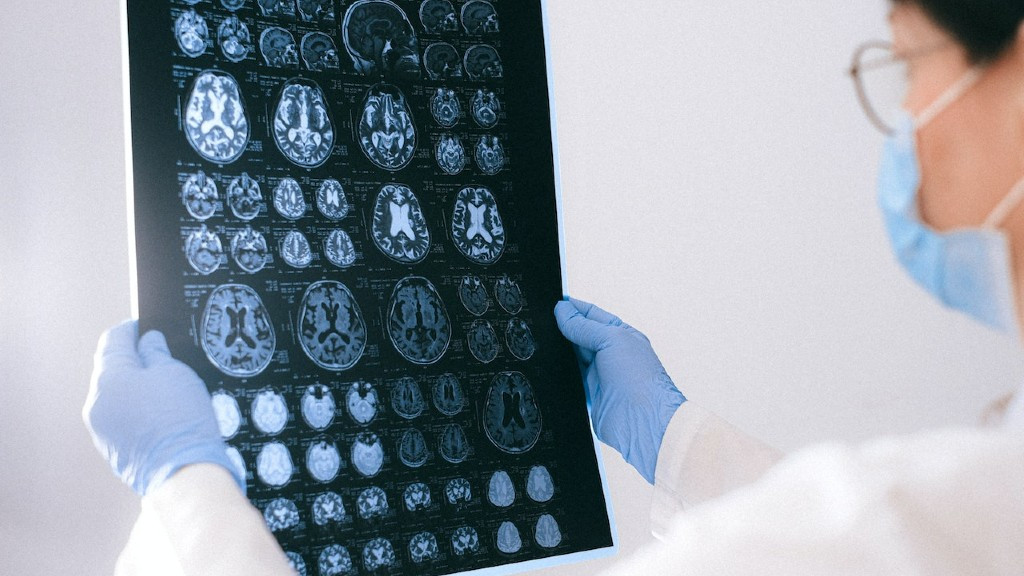Mathematical models help predict the evolution of neurodegenerative diseases
Artificial intelligence helps personalize treatments and predict patients' evolutionThis technology for real-time big data processing is gaining ground in the healthcare sector
Researchers at the UOC and the IDIBAPS are studying its application in fields as varied as image processing and bioinformatics
The UOC's eHealth Center generates, transfers and shares e-health knowledge

Information and communication technologies (ICTs) are revolutionizing the world, and the health sector is no exception. ICTs are considered a strategic factor in improving individuals' health and guaranteeing a high-quality, modern and sustainable healthcare system. One of the most promising technologies is artificial intelligence (AI), which is capable of creating and training computer systems to make automatic data-based decisions. Two recent studies in which researchers from the Universitat Oberta de Catalunya (UOC) and the August Pi i Sunyer Biomedical Research Institute (IDIBAPS) have been involved highlight the potential of applying AI to the fields of image processing, and bioinformatics and genetics, respectively.
"There are a wide range of applications for big data and artificial intelligence in CT scans, X-rays, ultrasound and magnetic resonance imaging," said Jordi Casas Roma, a researcher in the ADaS Lab research group at the eHealth Center, and a member of the Faculty of Computer Science, Multimedia and Telecommunications and director of the Master's Degree in Data Science at the UOC. In their latest study, an open access scientific paper, the researchers involved have demonstrated that "integrating and processing all the data together, using multilayer networks, provides a more comprehensive analysis of the data than if they are analysed individually and independently".
Mathematics to understand changes in the brain
Casas's study focuses on defining a mathematical model that provides a better understanding of cognitive changes and impairment in the brain. The model was initially tested with multiple sclerosis, but the pattern is applicable to other neurodegenerative diseases. "Understanding what is happening in the brain when someone suffers from this type of disease is the first step towards being able to improve and personalize treatments. It is important to be able to determine and predict how the disease evolves, which will undoubtedly enable us to distinguish between different groups of patients, with similar types of evolution and different treatments from the other groups," he said.
The study was led by Ferran Prados Carrasco, another member of the ADaS Lab, and also involved UOC researchers Marcos Díaz Hurtado, from the eHealth Center, and Albert Solé and Javier Borge, from the Complex Systems (CoSIN3) group at the Internet Interdisciplinary Institute (IN3). Prados is now putting the theory of multilayer networks into practice: "We are in the initial phase, in which we have developed a biomarker – we have confirmed its sensitivity, we have published how to use it, and we have made the technology open so that other researchers and doctors everywhere can apply it to their data, […] At the same time, we have already begun the first clinical application using magnetic resonance data from people with neurodegenerative diseases such as multiple sclerosis and Alzheimer's or dementia."
Bioinformatics and genetics
Another important area of application for artificial intelligence in the field of health is bioinformatics and genetics, with metaheuristic algorithms. "These algorithms are very popular in combinatorial optimization, in other words, when there is a finite set of solutions for a problem, and you want to find the one that optimizes a specific objective function. They provide high-quality solutions to complex problems in real time," explained Laura Calvet Liñán, a researcher and member of the Faculty of Computer Science, Multimedia and Telecommunications, and the lead author of the study "On the role of metaheuristic optimization in bioinformatics". Calvet highlighted that "metaheuristics play a key role in medical imaging and disease modelling by means of variable selection and parameter fine-tuning, among other things".
About the eHealth Center
The eHealth Center is a cross-disciplinary academic centre open to the world that generates, transfers and shares knowledge on digital health. Its aim is to educate and empower both professionals and citizens through the use of digital technologies so that they might lead a paradigm shift in health. It is people-centred, using research, education and guidance to contribute to social progress and well-being. It is part of the university's commitment to the field of digital health.
This research supports the United Nations' Sustainable Development Goal (SDG) 3, Good Health and Well-being.
Reference articles
Casas-Roma, J., Martínez, E., Solé, A., Solana, E., López, E., Vivó, F., Díaz, M., Alba, S., Sepúlveda, M., Blanco, Y., Saiz, A., Borge, J., Llufriu, S. and Prados, F. (2022), Applying multilayer analysis to morphological, structural and functional brain networks to identify relevant dysfunction patterns. Network Neuroscience. https://doi.org/10.1162/netn_a_00258
Calvet, L., Benito, S., Juan, A. A. and Prados, F. (2022), On the role of metaheuristic optimization in bioinformatics. International Transactions in Operational Research. https://doi.org/10.1111/itor.13164
UOC R&I
The UOC's research and innovation (R&I) is helping overcome pressing challenges faced by global societies in the 21st century, by studying interactions between technology and human & social sciences with a specific focus on the network society, e-learning and e-health.
The UOC's research is conducted by over 500 researchers and 51 research groups distributed between the university's seven faculties, the E-learning Research programme, and two research centres: the Internet Interdisciplinary Institute (IN3) and the eHealth Center (eHC).
The University also cultivates online learning innovations at its eLearning Innovation Center (eLinC), as well as UOC community entrepreneurship and knowledge transfer via the Hubbik platform.
The United Nations' 2030 Agenda for Sustainable Development and open knowledge serve as strategic pillars for the UOC's teaching, research and innovation. More information: research.uoc.edu #UOC25years
Experts UOC
Press contact
-
Editorial department
